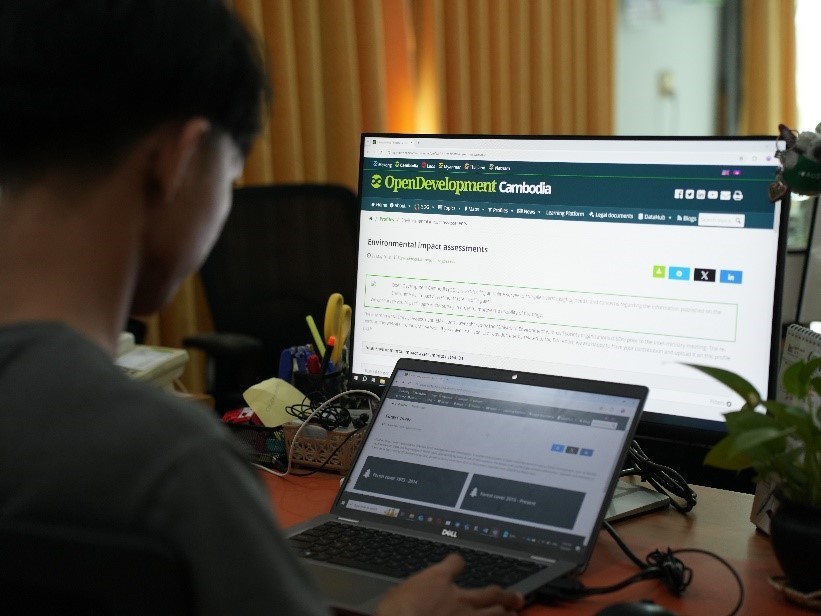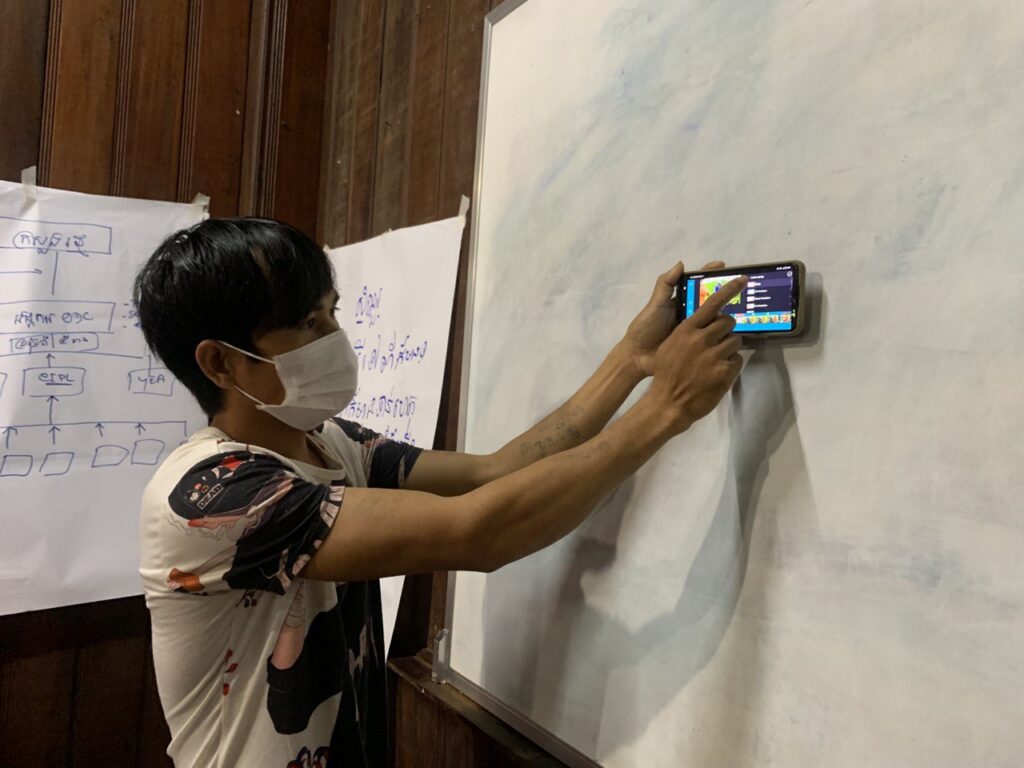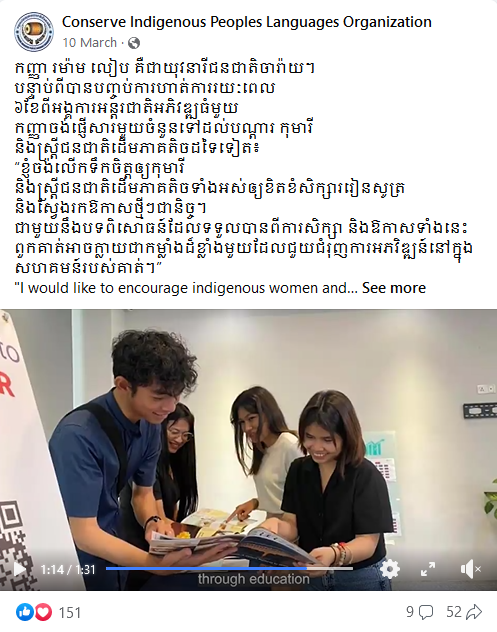To improve access to meaningful and reliable natural resource management (NRM) and environmental protection data, ODC has taken a significant initiative to ensure the availability of Environmental Impact Assessment (EIA) reports. Providing the public with EIA reports is critical to ensuring transparency, accountability, and informed decision-making. It enables the public to understand the potential environmental consequences of proposed projects and hold decision-makers accountable. The public’s access to this information promotes informed debate, ensures that all stakeholders’ voices are heard, and supports the prevention of environmentally harmful projects. This transparency fosters trust among the government, industry, and the community, resulting in improved environmental outcomes. This will help the relevant stakeholders and community to monitor the project implementation. However, the advocacy for disclosure poses substantial challenges.

As a first step, ODC organized a series of workshops on the disclosure of environmental data, specifically EIA reports. These workshops were attended by CSOs, the Ministry of Environment’s EIA Department, and other stakeholders. During these sessions, ODC emphasized the importance of making EIA reports public and encouraged collaboration to achieve this transparency. In addition to the workshops, ODC wrote several official letters to the MoE and partners, urging them to release the EIA reports. This advocacy was addressed through both formal and informal settings.
Despite the government’s initial stance of “No Disclosure,” there was one notable development: ODC was able to find alternative locations where environmental data and reports are stored. While direct requests to the government for EIA report disclosure have yet to make results, ODC identified an alternative approach, i.e., that CSOs with access to EIA reports can share them. Through numerous discussions and advocacy efforts, ODC raised critical questions, including, “Why can’t these reports be shared when regulations require their disclosure?” Furthermore, “Why aren’t the CSOs sharing the reports they have?”
ODC continued to lobby key stakeholders through discussions, official requests, and workshops. These persistent efforts, supported by USAID through CSS, returned a significant breakthrough: an agreement to share more than 90 draft EIA reports from the Development and Partnership in Action Organization (DPA). Most of these reports focus on major projects in the extractive industrial sector that interest researchers, advocates, journalists, and CSOs.
Similar Stories
Indigenous youths’ improvement on mobile report
Being trained to use a smartphone to report reflects the view of indigenous youth. “This training is very significant for me since I could use it to empower my community and share with outsiders who we are and what we are living with.” Mr. Lao Bundinh is a Jarai indigenous youth. He was born in a rural area of Phork Thom village, Phork Nhai commune, Ouyadav district, Ratanakiri province, and he has lived there for 27 years. He did not have much knowledge of story writing as well as photos and video shooting. However, he would like to share his daily life as an indigenous youth, his livelihood, and culture, as well as the environment in his community with other people through social media. Mr. Lao Bundinh was sharing how to cut the video by using smartphone during the mobile report training provided by CIPL. Until when he got to know about the mobile report training organized by Conserve Indigenous Peoples Languages (CIPL) in collaboration with Open Development Cambodia (ODC), he had the chance to learn what he liked and waiting for. He joined the mobile report training, which aims to build the capacity of indigenous youths on how to use a mobile phone to report on natural resources management by writing stories and using photos as the evidence-based mechanism on 21 – 22 September 2022 in Ratanakiri province. It required him to put more effort and time into improving his skills. Indigenous youths were joining the training on the mobile report provided by CIPL at Ratanakiri province. His commitment to sharing what is happening within his community inspired him to persevere through the challenges. Currently, he can write a story and edit a video to share on the social media platform. He feels very thankful for the organizer giving him an opportunity to learn what he always wishes to. He posted his own video, “Finished the mobile report training on environment, video shooting, and video editing from CIPL, I could do some practices,” to illustrate the beauty of the forest, environment, and livelihood of his community on social media.
CSS’s Intern Romam Leap shares her internship experience
CSS produced a short video to highlight the internship experiences of former communications intern and Jarai indigenous youth Romam Leap. The video was very well received by the public on social media, generating approximately 150 reactions, 52 shares, and 2,700 views on Facebook
Pride Champions
KUY SovannChai, 17, is a student at General Education and Technical High School in Siem Reap province. Sovannchai became a member of Pride Corner’s core team after he participated in SOGIESC training conducted by Love in Diversity (LID) on August 30-31, 2023. Being a part of the core team, he frequently shares his knowledge to acquaintances about LGBTQI+ and SOGIESC in order for them to gain better understanding. Sovannchai believes that this is valuable information worth learning and spreading. He expressed satisfaction that CSS, through KYA, established a Pride Corner at his school. He believes that the Pride Corner serves as an exceptional place for fostering information dissemination and discussion related to LGBTQI+ issues. In addition, Sovannchai applied the knowledge he gained during the training session to participate in an essay competition focused on respect for LGBTQI+ rights and eliminating discrimination. As a result of his efforts, his essay was one of the top ten essays received. The competition was organized by KYA leading up to the Angkor Youth Camp. In contrast to Sovannchai, HEUN Chanmakara, 22, wasn’t always in agreement with the concept of LGBTQI+. His perception changed following his experience of volunteering with the organizing team for the 9th AYC. Prior to the camp, Makara openly expressed his disapproval of LGBTQI+ individuals during his guest appearance in KYA’s “I Know We Know” podcast. He perceived individuals identified as LGBTQI+ as abnormal and admitted to discriminating against them by avoiding any interaction with them. Taking part in AYC changed Makara’s mindset when it comes to LGBTQI+ and SOGIESC. Makara expressed that he understands these concepts better than ever before. “If a friend confides in me about their identity as an LGBTQI+ individual in future, they can rest assured that they have a supportive ally who will never discriminate against them”, said Makara. Similar to Makara, PREM Neth, 19, wasn’t always very familiar with the topic of LGBTQI+ or SOGIESC. After joining the same training that Sovannchai did with KYA and LID, Neth’s view was expanded. Neth shared that it was her first training about the topic and she, along with other students, gained lots of insights from the training, especially various struggles and challenges faced by LGBTQI+ people. Neth said: “I used to call names to my gay friends making fun of them. I didn’t think that the name calling was hurtful and affected their feelings. It was a mistake that I regret.” “I have since apologized to them and stopped calling them names. I also encouraged other friends to follow my footsteps as well,” Neth added. Neth’s story serves as a great example of how a bit of open-mindedness goes a long way. Not only did she change her own mindset, but she is determined to help changing others,’ including those of her own family. Neth expressed that her participation in KYA’s activities met with a lot of questions at first from her parents, but after taking time to explain to them, her parents approved of her involvement with KYA’s activities. PREM Neth is one of KYA’s core members who often participated in KYA’s activities, including sharing sessions


